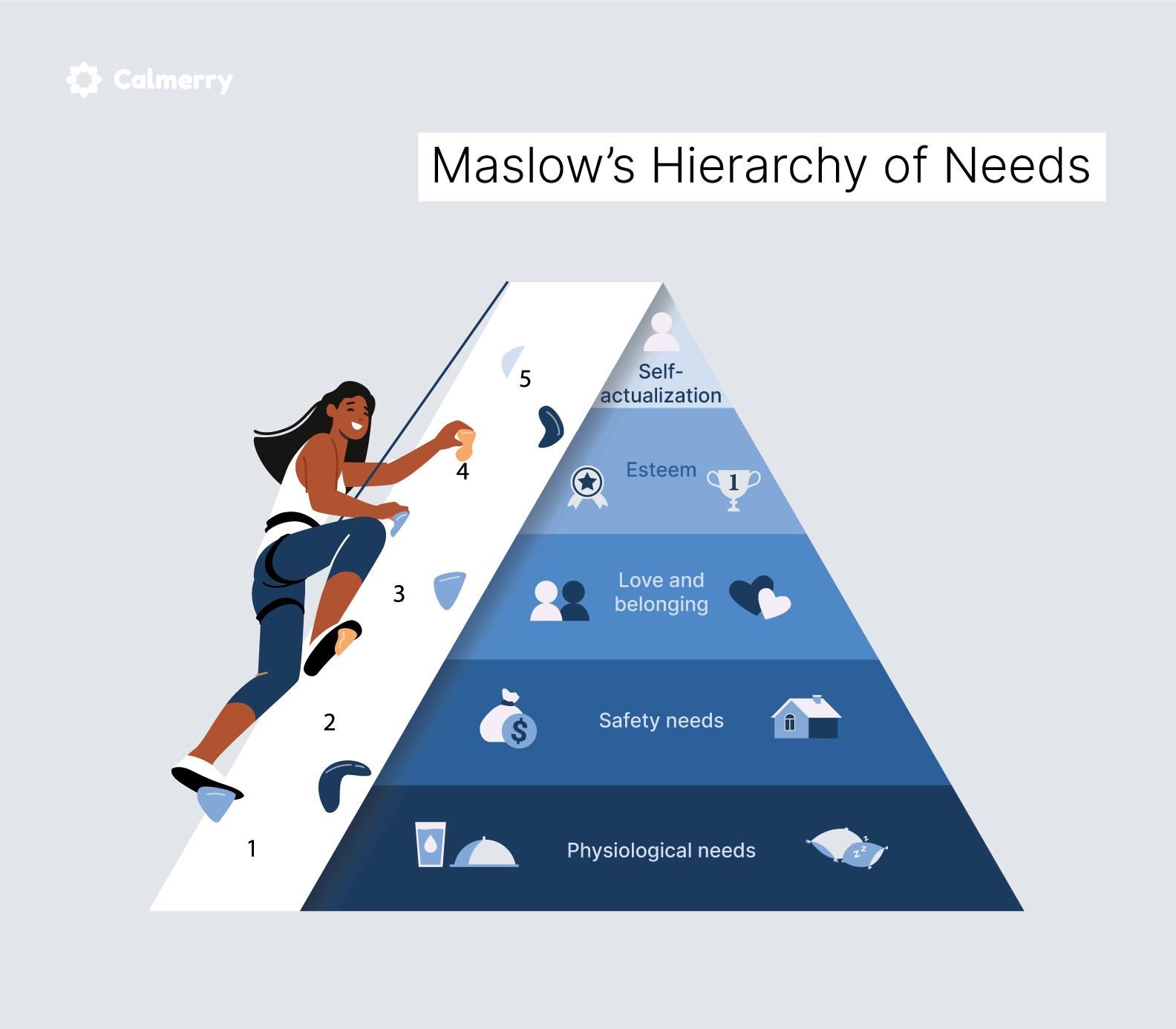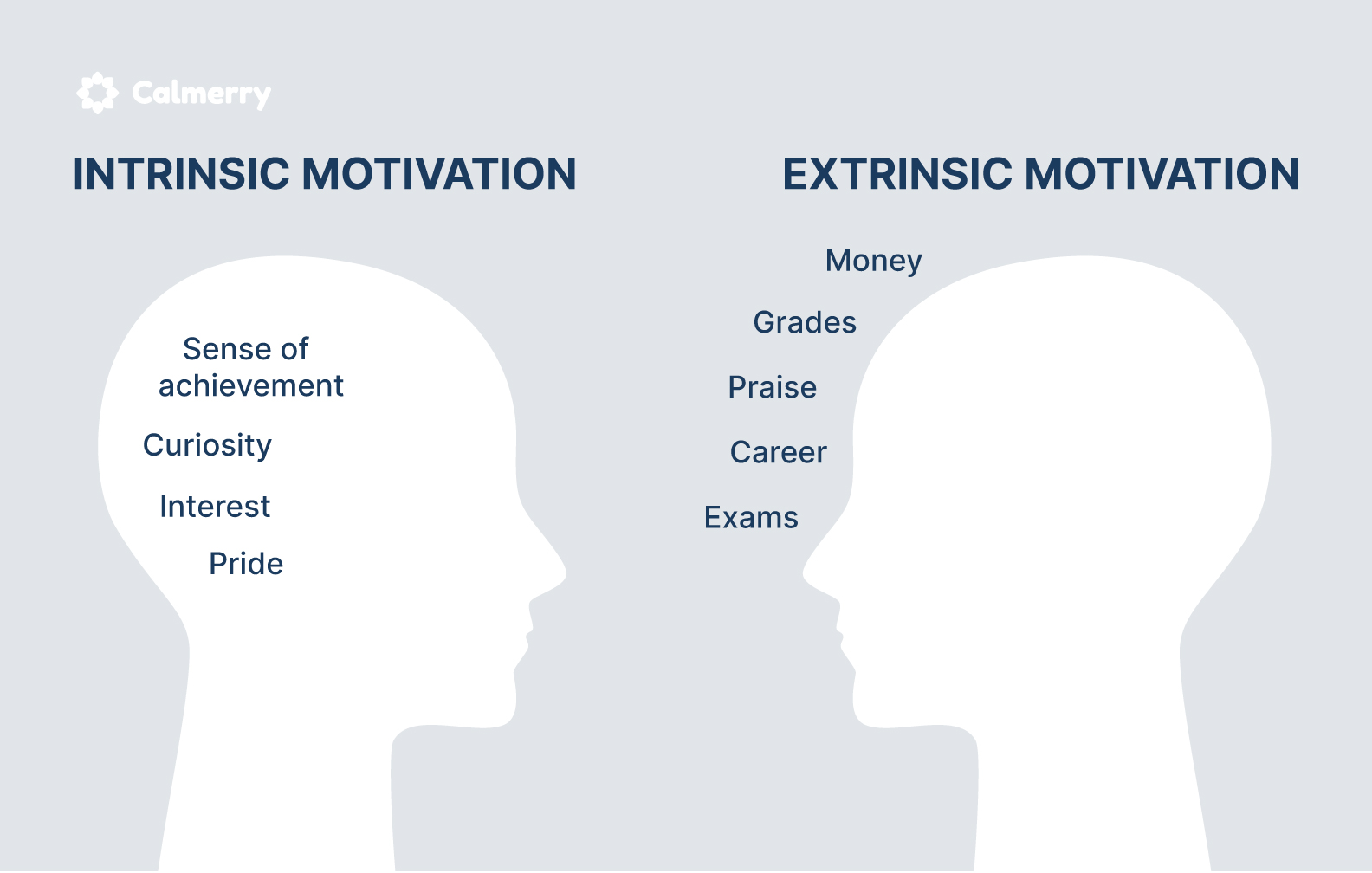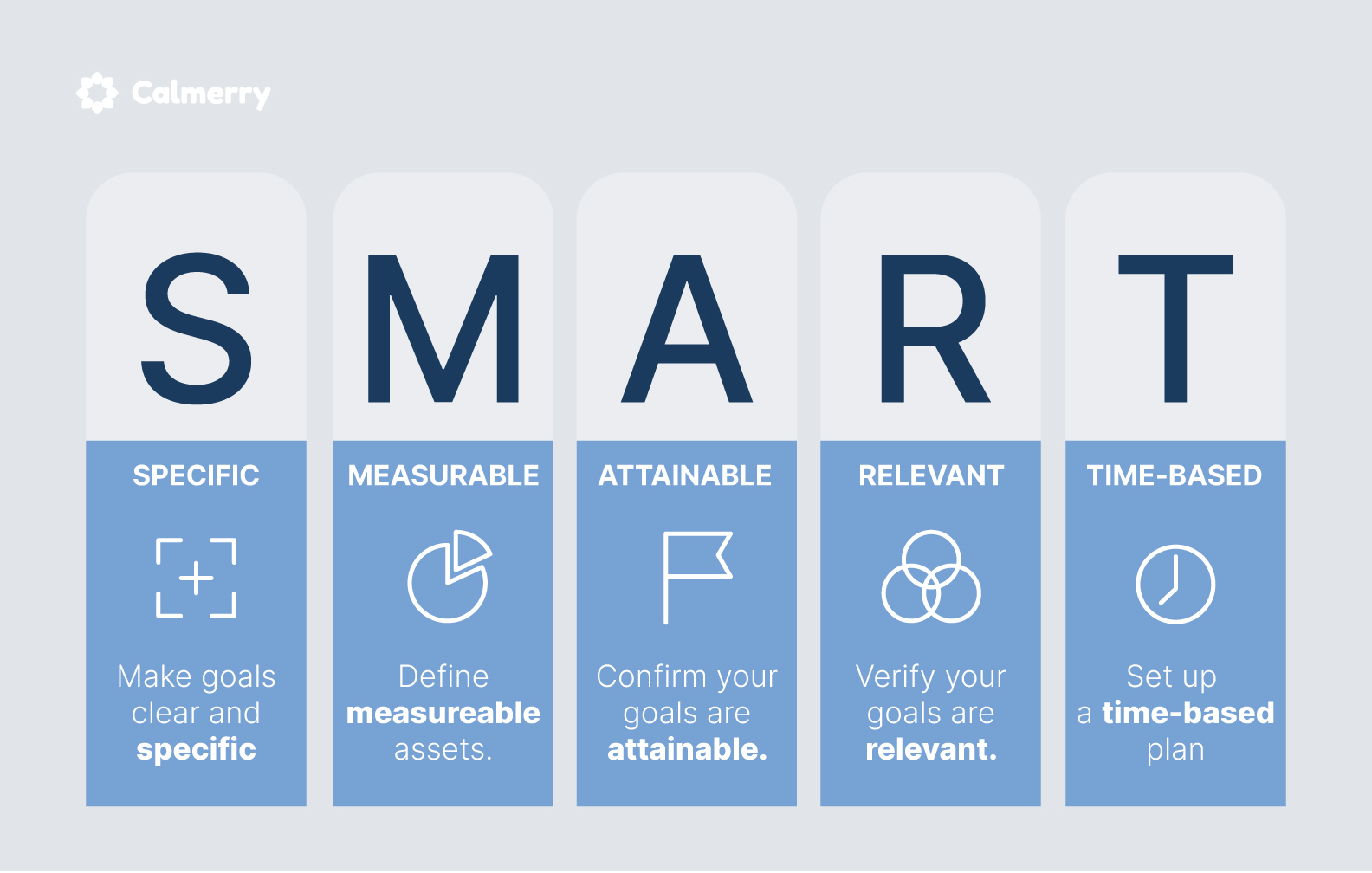Motivation Unlocked: What It Is and How to Get It

In this article
Have you ever wondered why you want to do some things more than others? Why do some things seem to matter more to you?
Some days you wake up ready to take on the world. Other days, you just want to pretend you didn’t hear the alarm.
And then there are those times when you start off like you’re on fire, only to lose interest over time.
If that sounds familiar, you’ve experienced motivation, and it plays a big part in why we do what we do. It is the driving force behind human behavior and what literally keeps you alive. It’s also what helps you run that 5K or not hit the snooze button on your day.
Motivation and why we do things are complex and multifaceted. It’s different for everyone. If you’ve ever set a goal, you’ve probably thought about your own motivation:
Where does it come from?
Why is motivation important?
Can you increase your motivation?
Motivation can be a powerful tool to help you reach your goals.
What is motivation?
Before we talk about what motivation is, it’s important to know what it is not. Motivation is not the same as willpower. It is not a reflection of your ability or achievement.
The quick answer is that motivation is that “thing” that drives you to do what you do. Motivation is what gets you going and keeps you moving toward your goals. Without it, you wouldn’t get anything done. Motivation is what propels you. It’s that “thing” that turns ideas into action.
The more complete answer is that motivation is the impetus or “push” that gives purpose or direction to behavior. It can occur on a conscious or unconscious level. The motives for acting can be to satisfy basic needs such as thirst, hunger, or safety or higher-level needs such as social connection, competition, or personal interests and goals. Motivation is more than just wanting something. It’s more than just having a goal.
Motivation is not static. It waxes and wanes, even with something you love doing.
Theories of motivation explained
A number of theories of motivation seek to explain the deeper how and why of motivation. Some theories focus on needs or drives related to motivation.
Other theories focus more on the internal, cognitive factors that influence motivation, like arousal or instincts.
Most theories of motivation can be placed in one of several categories:
Incentive Theory of motivation
The Incentive Theory, sometimes referred to as the Reward Motivation Theory, holds that behavior is extrinsically (externally) motivated. In other words, people are motivated to do things because there’s an external reward of some kind. It could be an allowance for a child, a sticker for good behavior, a paycheck or a bonus, or an award. Reinforcement plays a big role in this type of motivation.
Drive Theory of motivation
According to Drive Theory, people are motivated to do things in order to reduce inner tension or distress caused by unmet needs. What drives us can be both physiologically and psychologically based. For example, if you feel cold, you might be motivated to put on a coat or seek a warmer spot to reduce feeling cold.
Arousal Theory of motivation
The Arousal Theory of motivation suggests that people act in ways to either decrease or increase levels of arousal. We are motivated to maintain an optimal level of arousal. Arousal in a psychological context means mental alertness. An example of high arousal might be feeling tense or anxious. To reduce that tension, you might feel motivated to do some deep breathing or listen to soothing music.

Humanistic Theories of Motivation
Humanistic theories of motivation are based on the idea that people are motivated by basic needs and have cognitive reasons for doing certain things. Probably the most well-known of the humanistic theories of motivation is Maslow’s Hierarchy of Needs.
This theory holds that people are motivated by five core needs:
- Physiological needs – things like food and water, clothing, shelter, safety
- Safety needs – these needs are focused on basic safety and security, protection from violence, emotional stability and well-being, financial and health security
- Love and belonging needs – these are social needs that focus on the ability to interact with others in safe and healthy ways: friendships and family bonds, physical and emotional intimacy, and being a part of social groups (e.g., community, workgroup, hobby group, etc.)
- Esteem needs – esteem needs are considered higher level, ego-driven needs: self-respect, self-esteem
- Self- actualization needs – the highest level of human need, self-actualization is living up to your full potential. These needs are sometimes referred to as self-fulfillment needs and include education, skill development, caring for others, learning new things
You’ve probably seen Maslow’s Hierarchy of Needs depicted as a pyramid. These needs are not equal but are ranked in importance, starting with the most basic, lower-level needs for survival, followed by the higher-level needs. Motivation comes from the drive to meet the needs at each level. Only after basic needs are met can one pursue higher-level needs.
Approach/Avoidance
Approach is the motivation that encourages movement towards something positive. Avoidance is the motivation that encourages movement away from something negative.
No matter what theory you choose, the bottom line is that motivation is a complex blend of factors that, when they come together, can help you to move closer to what you want or need.
How motivation works
As the various theories show, motivation is more than a nudge in the right direction or simply wanting to do something. Achieving a goal requires endurance and persistence to keep going despite obstacles you might encounter along the way.
Motivation can be broken down into a set of three components that, working in tandem, create what we know as motivation.
The three components of motivation are:
- Activation – the decision to act, to pursue a goal
- Persistence – the effort you expend and sustain over time, even through obstacles you might encounter
- Intensity – the energy (e.g., concentration, effort, focus) you put into pursuing your goal
These components comprise a complex blend of physiological, psychological, social, and cognitive factors that influence your behavior.
Another way to think about the components of motivation comes from a perspective known as the 3C Model of Motivation. This well-validated model conceptualizes motivation as an interconnected dynamic between the head, the heart, and the hands.
- Head – represents our explicit motives and intentions, our goals and commitment to them
- Heart – represents our intrinsic motives and emotions, unconscious needs and motives
- Hands – represents our perceived skills, abilities, and knowledge with respect to the goal
How these components come together influences our levels of motivation. When all three components are fulfilled, optimal motivation is the result.
Types of motivation
Just how we are motivated relies on where that motivation comes from. You can be motivated by something inside you, like a preference for something. You can be motivated by something outside of yourself, like the chance to win a prize. Both are useful when you’re trying to change a behavior or achieve a goal.
Intrinsic motivation
Intrinsic motivation is the type of motivation that originates within you and is influenced by your values, goals, or personal gratification. It is the impetus for self-motivation. It occurs even in the absence of a reward. In other words, you do things for reasons besides getting rewarded in some way.
For example, say you are interested in history. You might pick up a book on history or watch a documentary about a historical event just because you want to learn more about it. There’s no payoff. You’re not being graded. You simply have the desire to learn more about it, and it pleases you to do so. That’s intrinsic motivation.
Another example of intrinsic motivation is a random act of kindness. It is simply something you do because you feel the need to help someone, and you do so without recognition or award. And it feels good to help someone. Some might argue that feeling good in itself is a reward, and they wouldn’t be wrong. However, that gratification comes from within. Intrinsic.
Extrinsic motivation
On the opposite end of the motivation spectrum is extrinsic motivation. Extrinsic motivation is that motivation that comes from the desire for some specific outcome: a reward, an accolade, or a personal goal.
Extrinsic motivation examples might include:
- Completing a project at work and receiving kudos from the boss
- Getting an award
- Getting a paycheck or bonus
Another example of extrinsic motivation is one many of us experienced as kids and parents use all the time: allowance. Complete chores and get an allowance. Grades are another example of extrinsic motivation. Study and do homework. The desired payoff is a good grade.
Motivation isn’t always towards something. People can also be externally motivated to avoid something. For example:
- We follow laws to avoid being arrested or going to jail.
- Kids follow the rules to avoid being grounded by their mom or dad.
- Someone with a severe allergy is motivated to avoid their allergen and a possible medical crisis.
And avoidance isn’t always avoiding an external consequence. You can even be intrinsically motivated to avoid something. For example, you may find that not getting enough sleep leaves you feeling irritable. To avoid that feeling, you make it a point to get enough sleep. There’s no tangible reward or payoff. You just want to stay feeling well.

Now, you might be wondering if one type of motivation is better than the other. On the surface, it might look like extrinsic motivation is the way to go. After all, who doesn’t like to be rewarded? But then there’s that feeling of gratification that comes from within, and not everything we want to do has a payoff.
So, is it better to be motivated from within, or is getting an external payoff where it’s at? The answer might surprise you.
Extrinsic motivation vs. intrinsic motivation
When it comes to motivation, whether intrinsic or extrinsic, the fact is, they each have their place in guiding behavior.
Research has found that both intrinsic and extrinsic motivation can be beneficial. They each have a different effect on behavior.
Intrinsic motivation creates a strong sense of inner satisfaction and empowerment. You gain a sense of accomplishment as you see the results of what you’re doing. While rewarding internally, there is no external reward. The desire to do something comes from within. No external reward required.
Relying on intrinsic motivation is best when someone is self-motivated and invested in achieving the goal.
Extrinsic motivation, on the other hand, relies on a payoff or reward of some kind. This external reward is a powerful tool in shaping behavior. Two of the most well-known types of learning styles that use external motivation include classical conditioning and instrumental conditioning:
- Classical conditioning – You’ve probably heard about classical conditioning and Pavlov’s dogs. Essentially, behavior responds to rewards following certain stimuli, in the case of Pavlov’s dogs, the ringing of a bell.
- Instrumental conditioning – This type of learning is the classic stimulus-response, relying on reinforcement or punishment (as in not getting the reward).
Extrinsic motivation can be used to shape a number of behaviors and is used in a variety of settings from home to school to the workplace to:
- Learn a new skill (trial and error)
- Increase interest in an activity (e.g., doing homework, finishing a work project)
- Give feedback on behavior performance – reward signals successful response
If that payoff doesn’t come, it can leave you frustrated, and makes it less likely you will continue a behavior.
Each type of motivation has its place, but there are times when they can actually confound each other. Research has found that when someone is already intrinsically motivated, adding external rewards can sometimes decrease their interest in the activity, even in young children. This is known as the over-justification effect, which can undermine motivation.
Interestingly, extrinsic rewards, when given intermittently, can actually increase intrinsic motivation. Some types of praise have been found to be one of the most powerful motivators.
What to know about a lack of motivation
We all have those times when we just aren’t feeling it. It’s normal for motivation to wax and wane. But what happens when you just can’t seem to get yourself motivated?
Lack of motivation is more than just not feeling it one day. Lack of motivation is more pervasive and is essentially the absence of a reason to do something. Why you’re lacking motivation can result from something going on internally, like having doubts about your ability to do something or feeling anxious. It can come from something happening around you, like feeling the pressure of expectations. Certain mental health issues, like depression, can affect motivation.
Lacking motivation can have effects on your mental health, confidence, and sense of well-being. It can leave you feeling uninspired and apathetic. That lack of interest can result in what’s known as low self-efficacy, a person’s perception of their ability to complete a task. It can become pervasive such that there is no interest in pursuing any goal.
12 Ways to increase motivation
If you’ve struggled with motivation, there’s good news. Whether you’re looking to reach a new workout goal, learn a new skill, or increase work performance, there are ways to increase motivation, and you can start using them right away.
1. Do something
It sounds simple enough, but getting started can be the hardest part. It’s kind of like getting a ball to roll. It takes that first nudge, and off it goes. Motivation is the same way. One small step forward can start you on your way.
2. Remember your why
Think about why you’re interested in doing what you want to do. Let yourself remember why it matters to you. Whether it’s for the love of it or you’re working towards a reward, take time to remind yourself why.
3. Keep it simple
Sometimes, we overcomplicate things or have too many competing things on our agenda. Where you can, eliminate activities that take up time or attention. Focus on what you’re interested in. Focusing on something helps you to get into what’s commonly referred to as the flow state.
When you’re in this state, your attention is focused and functioning optimally. Your brain releases those feel-good neurochemicals that create feelings of pleasure and accomplishment. Flow is self-rewarding. Translation: we like to do what makes us feel good.
4. Set SMART goals
Setting grand, lofty goals may sound good, but they can quickly overwhelm you. Break your goal into smaller steps. Set goals that are small and achievable. Write them down. As you achieve one, move on to the next step.
A great acronym to use is SMART:
S – specific
M – measurable
A – attainable
R – realistic
T – time-limited

5. Listen to music that uplifts you
Music can be both soothing and motivating. There’s a reason why people have their “playlists” when they work out. Music also helps to soothe us when we’re stressed.
6. Write down your goals and “to-dos”
The act of writing implies a commitment to the goals you’re setting. It gives you ownership of your actions.
7. Get an accountability buddy
Sometimes knowing someone is waiting for you or is interested in what you’re doing gets you moving. Choose someone who will offer constructive feedback and hold you accountable for your actions.
8. Make a chain
Chances are you have some behaviors related to what you want to do that you do on a daily – habits. A great way to build motivation is to take what you already do well and add to it. It’s a concept sometimes referred to as habit cueing, habit stacking, or habit chains, and it is powerful.
Habit stacking is a way of building skills in ways that use what you already do well. As you master a skill, you can add the next one and the next. Before long, you look around and ask, “what else can I do?” Pick a few steps of what you want to do and make a list. Work on that list daily.
9. Journal
Sometimes our thoughts get in the way of what we want to do. A journal gives you a place to give a voice to all those thoughts spinning around in your head. A journal can help you give yourself a pep talk, sort out just what you want to do, and find what is inspiring and what might be holding you back. You can also use your journal to brainstorm or let your creativity run wild.
10. Find your passion
Doing what you love is motivating. It makes you feel alive and accomplished. Having things that motivate you in this way are important. Life is full of dull tasks that we can struggle to get motivated to do. Knowing that you have this outlet waiting for you can help motivate you through the mundane things. It’s all about balance.
11. Remember your strengths
Take time to recognize your strengths and abilities and past accomplishments. Recalling the times when you’ve been successful can help boost your confidence and remind yourself that you are strong and capable.
12. Reframe
Reframing just means thinking about something in a different way. If you’re feeling less than inspired about some of the things you have to do, reframe them. Try to think about them in ways that connect to things you’re passionate about. For example, studying for that final exam might not excite you. But summer break does! Think of passing that exam as your ticket to summer.
Bottom line
There are many, many ways to motivate yourself. Look for the things that interest you and drive you forward. Make a note of those. Tap into them.
And, finally, give yourself grace. No one can be motivated all the time, even for things they’re passionate about. If you’re feeling stuck, take time to check in with yourself. Would another perspective help? It might surprise you that counseling can help you to sort out what’s happening and help you get your motivation mojo back.
online therapy
live video session


